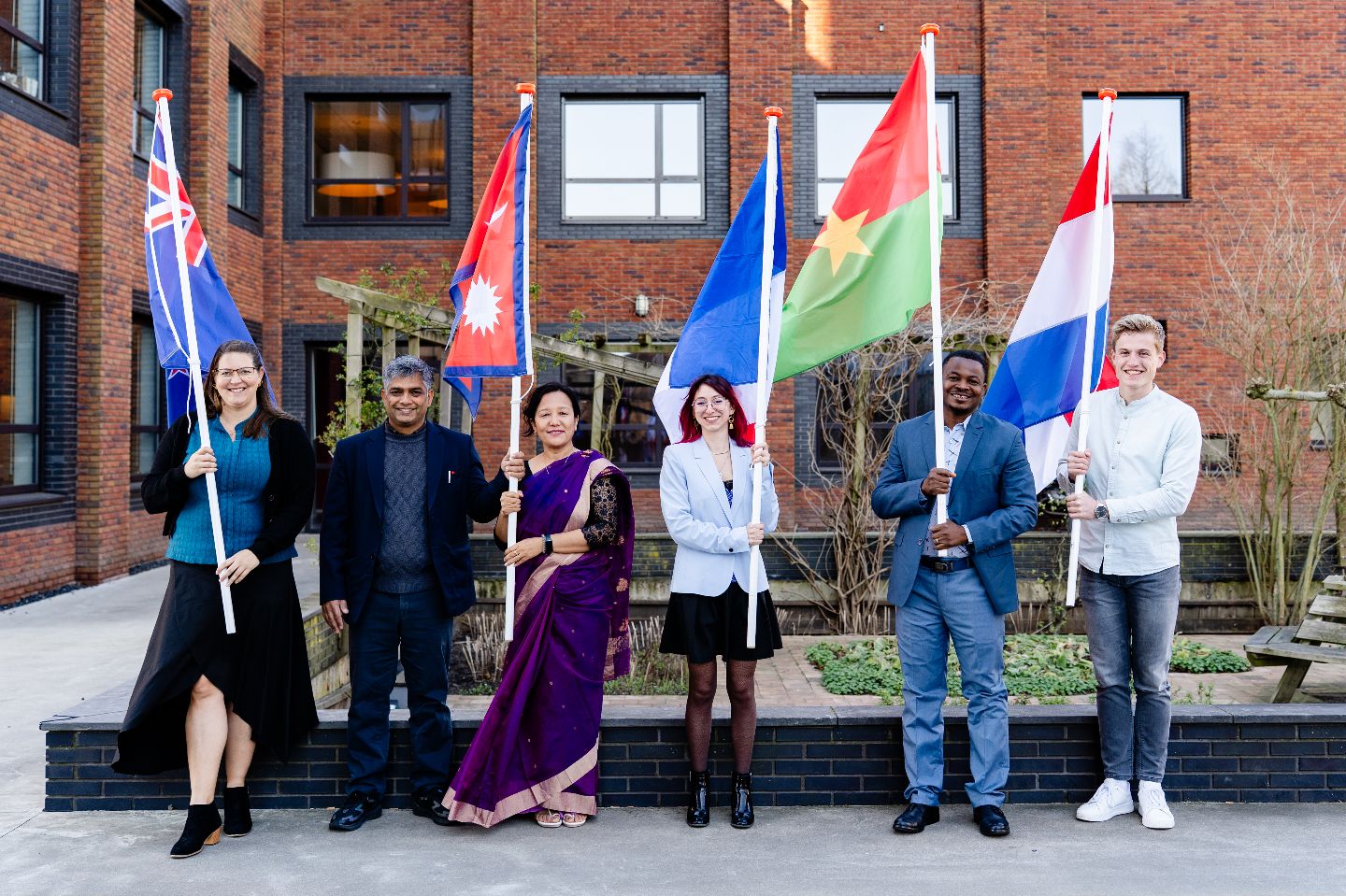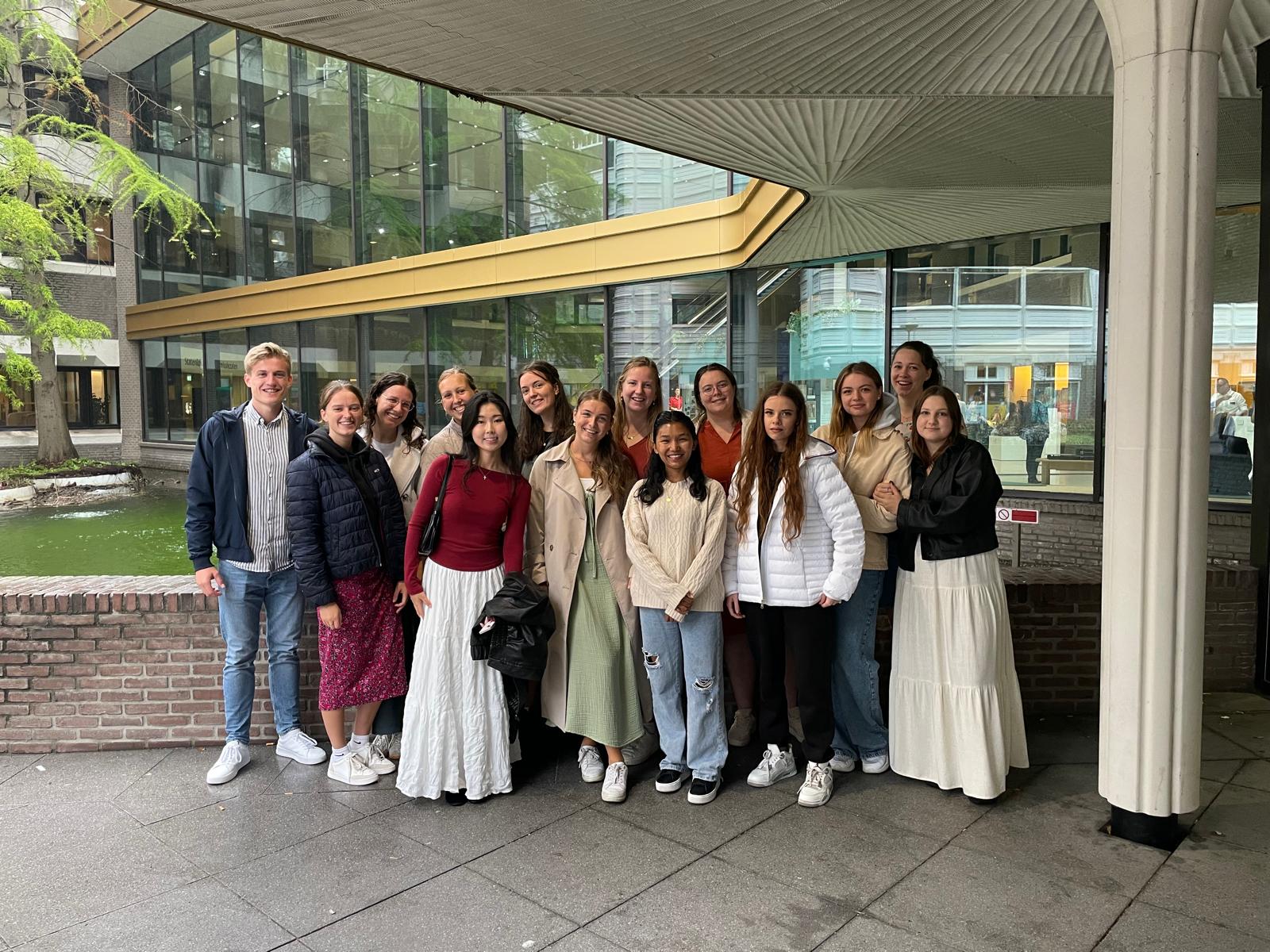The Master’s Programme Learning and Innovation, track: Christian Education, will start in September 2026 with a new group of international students.
If you want to deepen your knowledge and skills for Christian education, you are welcome to participate. By following this programme experienced teachers, principals, school leaders or people working in educational aid organizations will become teachers/ leaders with impact.
Ollé Patrice Kam from Burkina Faso and Meena Karki Subba share their experience with this programme.
Who are you? Can you introduce yourself?
Patrice: ‘I have been a government-certified English teacher at secondary schools in Burkina Faso for over ten years. Then I joined Woord en Daad as INCE-BF project manager.’
Meena: ‘I am from Nepal. I am a teacher educator and have worked in education for over two decades. I am a mother of two daughters. I work at the Early Childhood Education and Care (ECEC) Innovation in Education Institute in Nepal. I completed the MLI course as my third Master's degree in July 2024.’
Why did you choose to follow this Master's programme?
Patrice: ‘Firstly, to strengthen my Christian educational vision and support the work of INCE-BF more effectively at a sector level. I want to be able to connect historical educational theories to today's challenges and envisage the future with a better perspective. This would give me a better position to influence mindsets for change.
Secondly, I wanted to build up my leadership skills in a diverse, multicultural and international context. This is important and supportive of the broker and facilitator role that INCE-BF plays in the education sector by mobilising key education stakeholders.
Thirdly, I wanted to develop my action research skills to foster the creation of solutions based on the needs of the sector and take Christian education to another level.’
Meena: ‘My organisation has started a new Research and Development department and I have been given responsibility for leading it. To prepare for this role and lay a strong foundation for my future PhD studies, I decided to join the Master Christian Education programme.’
Is there something you hope never to forget from what you’ve learned?
Patrice: ‘During my time at DCU, I could see a real match between words and deeds: on the one hand bringing the church, the family and the school together in the feed of education and on the other hand touching the hearts of students to facilitate transformation.
And of course, the international side of the Master’s programme provides a tremendous opportunity for real fellowship with brethren from all over the world.’
Could you give an example of something you have learnt that you are able to apply in practice?
Meena: ‘One impactful concept that I have applied is the thinking, feeling and action principles which I have incorporated into the mentoring activity in our teaching training programme.
Additionally, the concept of a Professional Learning Environment( PLE) has been implemented in our organisation as a key component of staff capacity building. Similarly, we have adapted the teacher profile t our own context in our teacher training program. The Professional Development sessions in our teaching training programme have been refined based on experience and ideas from the Masters’ programme.’
Patrice: ‘Firstly, the action research methodology has helped me to design an innovations to support teachers in caring for students with dyslexia. Secondly, I have learned about leadership styles and inclinations, which has helped me to better understand my colleagues and collaborators. Finally, techniques of self-efficacy are also being used.’
Did you take part in the programme in the Netherlands? What was it like?
Patrice: ‘Yes, I spent two weeks on campus each year. It was a great experience to get to know the Dutch people in a different way. The first time I ever heard of the ‘Hollandais’ was in history lessons, where they were described as merchants, explorers and colonisers.
The second time, I discovered them as supporters of development and relief for the most vulnerable, through NGOs and financial support from the Dutch government to our government. Dutch people are brave and creative with great time management skills.’
Meena: ‘Yes, I had the opportunity to follow the programme in the Netherlands. It was enriching to witness the Dutch education system firsthand and to learn in an environment that values academic professionalism and Christian principles. Meeting colleagues from around the world who shared similar values made the experience even more meaningful and memorable.’
What does the programme entail? Could you tell us a bit about it?
Patrice: ‘The programme is a two-year master's programme organised into four semesters and three strands: Content, Personal and Professional Development, and Research. Implementing these three strands is intended to develop a 'teacher leader profile' as an agent of change.
These profiles have already been defined, and each semester focuses on specific facets of the profile with clear assessment criteria. You receive a summative assessment at the end of each semester.
By the end of the programme, you will have developed an innovation that you have worked on throughout the semesters. Every semester, you also have to set personal learning goals and assess how well you have achieved the previous ones.’
Meena: ‘The journey was full of learning and exploration. This was my third Master's degree and I can confidently say that it had the greatest impact. What sets it apart is the balance of theory and practice.
It challenges you to reflect deeply on your own context and empowers you to take ownership of your learning. It also encourages us to think beyond our own context, and the programme makes students take responsibility for their own learning. Looking back, I am convinced that taking this course was a good decision.’
How has this programme shaped your vision for the future?
Meena: ‘This programme has given me the skills and confidence to lead and contribute to transforming education in my own context. My work has become more meaningful as a result.
It has strengthened my academic and professional capacities, and reaffirmed my passion for serving education with purpose and conviction. I now look towards the future with greater clarity and a meaningful commitment to continuing the work I have started.’
In what ways has this programme helped you to become a Christian teacher?
Patrice: ‘The programme helped me to develop my leadership skills and provided me with the tools and means to support creativity and innovation in my role as a teacher leader.’
Meena: ‘The programme has helped me to better understand what it truly means to be a teacher leader: someone who not only imparts knowledge, but also nurtures hearts and minds. It has deepened my ability to integrate learning with action and lead by example.’
What would you say to people considering this programme?
Meena: ‘If you are passionate about education, want to grow professionally, and want to experience first-hand what it means to be an educator, I highly recommend this programme.
It's not just a Master's degree; it's a personal transformation journey designed to equip you to lead with clarity, commitment, and a broader understanding of educators' roles in learners' lives. The programme helps you design innovations in your own context, teaching you to view education through different lenses. You will gain new experiences and insights with each session.
The programme will help you understand that qualifications and your position in the organisation do not matter; what matters is how you embody the values of a teacher.’
Start of Master’s in 2026
We intend to have a new cohort starting the Master’s programme every two years, with the next cohort starting in September 2026. You can register from October 2025. The first deadline for application is 1 December 2025.


